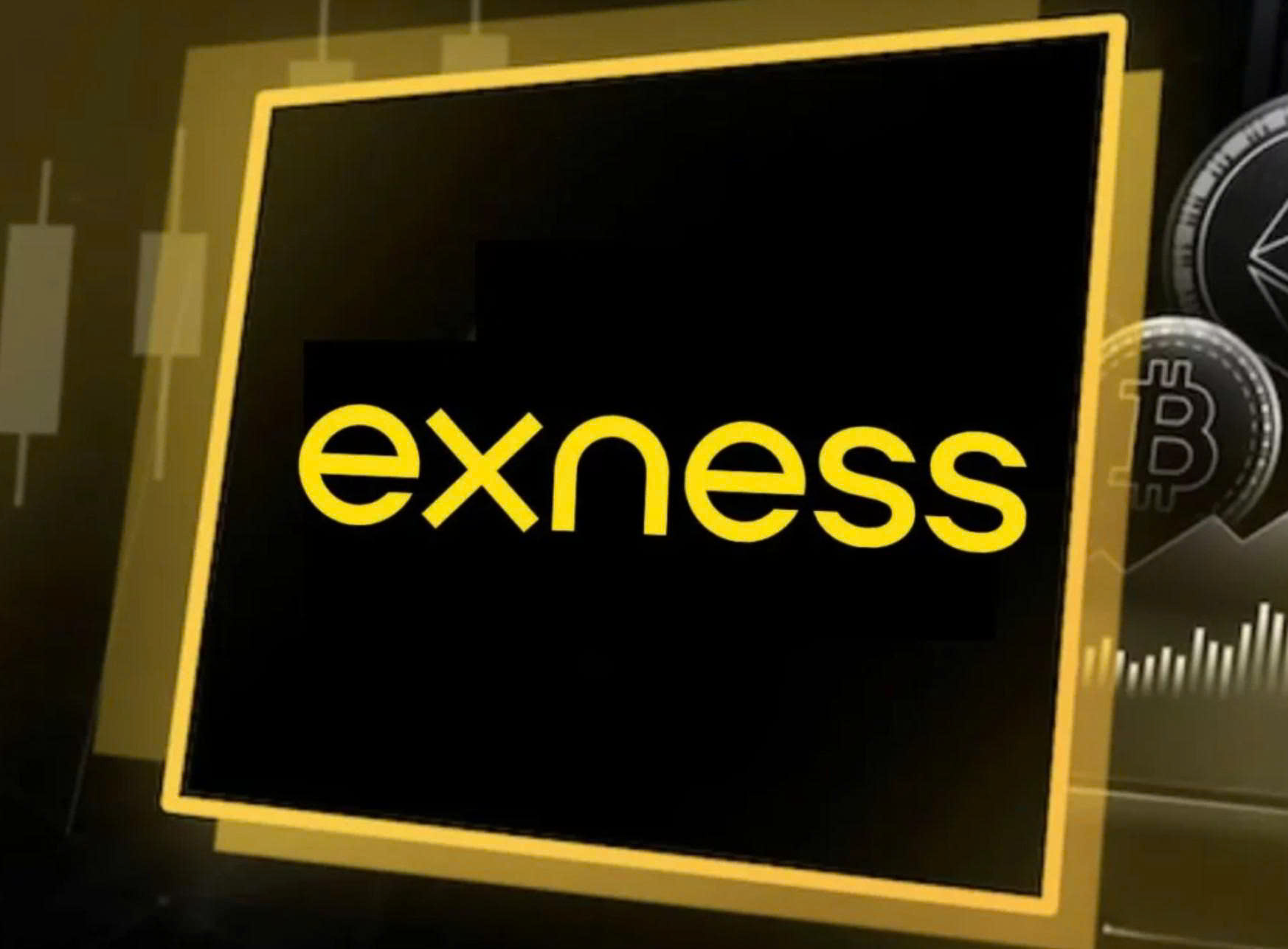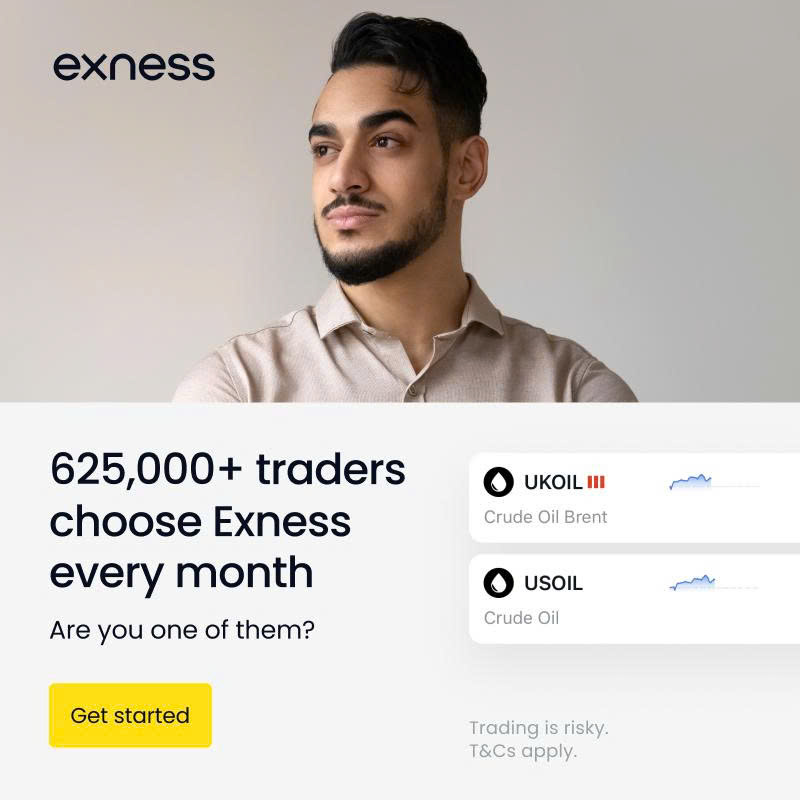
8 minute read
Is Exness Legal in Egypt? A Comprehensive Guide for Traders
from Exness Legal Egypt
Forex trading has surged in popularity across Egypt, fueled by increased internet access, growing financial literacy, and the allure of financial independence. Among the many brokers vying for the attention of Egyptian traders, Exness stands out as a globally recognized platform offering competitive trading conditions, user-friendly interfaces, and advanced tools. However, one critical question lingers for many: Is Exness legal in Egypt? In this in-depth guide, we’ll explore the legality of Exness in Egypt, its regulatory status, compliance with local laws, trading conditions, and practical tips for Egyptian traders navigating the forex and CFD markets in 2025. Whether you’re a novice or an experienced trader, this article will provide clarity to help you make informed decisions.

✅ Trade with Exness now: Open An Account or Visit Brokers 👈
Understanding Exness: A Global Trading Powerhouse
Before diving into the legal landscape, let’s first examine what makes Exness a preferred choice for traders worldwide. Founded in 2008 and headquartered in Limassol, Cyprus, Exness is a leading online forex and Contracts for Difference (CFD) broker. It serves millions of clients across over 200 countries, offering access to a wide range of financial instruments, including forex pairs, commodities, indices, stocks, and cryptocurrencies.
Exness is renowned for its competitive trading conditions, such as:
Tight spreads starting from 0.0 pips.
High leverage options, up to 1:2000 or even unlimited in some cases.
Fast execution speeds for seamless trading.
Support for popular platforms like MetaTrader 4 (MT4), MetaTrader 5 (MT5), and the proprietary Exness Terminal and mobile app.
Transparency, with monthly financial reports audited by Deloitte, one of the "Big Four" global accounting firms.
For Egyptian traders, Exness offers localized features, including Arabic language support, tailored payment methods, and Islamic (swap-free) accounts, making it an attractive option. But does it align with Egypt’s regulatory framework? Let’s explore.
The Regulatory Landscape for Forex Trading in Egypt
To determine whether Exness is legal in Egypt, we must first understand the broader context of forex trading in the country. Egypt has a regulated financial sector, but its forex market operates in a somewhat gray area compared to more developed markets like the UK or the US. The primary authorities overseeing financial activities in Egypt are:
Central Bank of Egypt (CBE): The CBE regulates the banking sector and foreign exchange operations, setting rules for currency exchange and monitoring the stability of the Egyptian pound (EGP). It imposes restrictions on foreign currency transactions to protect the local economy.
Egyptian Financial Regulatory Authority (FRA): Formerly known as the Egyptian Financial Supervisory Authority (EFSA), the FRA oversees non-banking financial markets, including securities, bonds, and futures. It ensures compliance with anti-money laundering (AML) measures and protects investors from fraud.
Forex trading is legal in Egypt, provided it aligns with the guidelines set by the CBE and FRA. However, Egypt does not have a robust domestic forex regulatory framework like the Financial Conduct Authority (FCA) in the UK or the Commodity Futures Trading Commission (CFTC) in the US. Key considerations for forex trading in Egypt include:
No outright ban: Egyptian citizens can legally trade forex, but they must comply with local regulations.
Broker licensing: Egypt does not issue forex-specific licenses, so most traders rely on international brokers like Exness.
Taxation: Income from forex trading must be declared, with a 10% income tax applicable under Egyptian law.
Leverage limits: The CBE caps leverage to minimize risks for retail traders, though international brokers may offer higher leverage.
Broker compliance: Traders are encouraged to use brokers regulated by recognized international authorities.
AML and KYC requirements: Brokers must adhere to anti-money laundering and know-your-customer policies, requiring traders to verify their identity and address.
Given this framework, the legality of Exness in Egypt hinges on its compliance with these rules and its international regulatory standing.

✅ Trade with Exness now: Open An Account or Visit Brokers 👈
Is Exness Legal in Egypt?
The short answer is yes, Exness is legal in Egypt. While Exness is not directly regulated by Egyptian authorities like the CBE or FRA, it operates legally under its international licenses, which allow it to serve Egyptian clients, provided it complies with local regulations. Exness operates in Egypt under its global entity, Exness (SC) Ltd, regulated by the Seychelles Financial Services Authority (FSA) with license number SD025. It also holds licenses from reputable regulatory bodies, including:
Cyprus Securities and Exchange Commission (CySEC): Regulates Exness’s operations in the European Union.
Financial Conduct Authority (FCA), UK: Oversees Exness’s activities in the UK.
Financial Sector Conduct Authority (FSCA), South Africa: Strengthens Exness’s credibility in the African market.
These licenses ensure that Exness adheres to strict international standards, including client fund segregation, negative balance protection, and robust risk management practices. For Egyptian traders, this means Exness provides a secure and regulated environment, even without direct oversight from local authorities. Additionally, Exness complies with AML and KYC requirements, ensuring that Egyptian traders’ funds and personal information are protected.
Why Choose Exness for Trading in Egypt?
Exness has positioned itself as a top choice for Egyptian traders due to its tailored features and robust trading environment. Here are some reasons why Exness stands out:
Localized Support: Exness offers Arabic language support across its website, trading platforms, and customer service, making it accessible for Egyptian traders. Its 24/7 customer support in English and Arabic ensures prompt assistance.
Islamic Accounts: For Egypt’s predominantly Muslim population, Exness provides swap-free accounts compliant with Sharia law, allowing traders to engage in forex trading without incurring interest.
Flexible Payment Methods: Exness supports a variety of payment methods suitable for Egyptian traders, including bank cards (Visa, MasterCard), e-wallets (Skrill, Neteller, WebMoney), bank transfers, and cryptocurrencies like Bitcoin and Ethereum.
Low Minimum Deposit: With options like the Standard Cent account requiring as little as $1, Exness is accessible to traders with varying budgets.
Advanced Trading Tools: Exness provides access to market analysis, technical analysis tools, economic calendars, and real-time data feeds, empowering traders to make informed decisions.
Transparency and Security: Monthly audits by Deloitte, segregated client funds, negative balance protection, and SSL encryption ensure a safe trading environment.
How to Start Trading with Exness in Egypt
Opening an Exness account in Egypt is quick and straightforward. Here’s a step-by-step guide:
Visit the Exness Website or App: Go to the official Exness website or download the Exness Trader app from Google Play or the Apple App Store.
Register an Account: Click on “Register” and fill out the form with your personal details, including email, country of residence, and password.
Complete KYC Verification: Upload verification documents such as a passport or national ID and proof of address to comply with AML regulations.
Deposit Funds: Choose a payment method (e.g., bank card, e-wallet, or cryptocurrency) and deposit funds. The minimum deposit varies by account type but can be as low as $1.
Start Trading: Once your account is funded, select a trading platform (MT4, MT5, or Exness Terminal) and begin trading.
Withdrawing funds is equally simple, with Exness ensuring fast and secure transactions, often processed instantly depending on the payment method.
Practical Tips for Egyptian Traders
While Exness is a reliable and legal platform for trading in Egypt, traders should keep the following tips in mind:
Start with a Demo Account: Practice trading strategies without risking real money to build confidence and refine your skills.
Understand Leverage Risks: High leverage can amplify both profits and losses. Use risk management tools like stop-loss and take-profit orders to protect your capital.
Stay Informed: Leverage Exness’s economic calendar and market analysis to stay updated on market trends and events.
Comply with Tax Laws: Declare your forex trading income and pay the required 10% income tax to stay compliant with Egyptian regulations.
Choose a Regulated Broker: While Exness’s international licenses provide robust oversight, always verify a broker’s regulatory status before trading.
Considerations for Egyptian Traders
Despite its legality, there are a few considerations for Egyptian traders using Exness:
Regulatory Gray Area: Forex trading in Egypt is legal but weakly regulated domestically, so traders must ensure compliance with tax and AML laws.
High Leverage Risks: Unlimited leverage can be tempting but requires careful risk management to avoid significant losses.
No Local Regulation: While Exness’s international licenses are reputable, it lacks direct oversight from the CBE or FRA.
By educating themselves on risk management and starting with a demo account, traders can mitigate these risks and maximize their trading experience.
Conclusion
Exness is a legal and reliable platform for Egyptian traders, operating under stringent international regulations and offering tailored features like Arabic support, Islamic accounts, and flexible payment methods. While Egypt’s forex market operates in a regulatory gray area, Exness’s compliance with global standards ensures a secure trading environment. By understanding local regulations, leveraging Exness’s tools, and practicing responsible trading, Egyptian traders can confidently navigate the forex and CFD markets in 2025.
✅ Trade with Exness now: Open An Account or Visit Brokers 👈
Read more:

